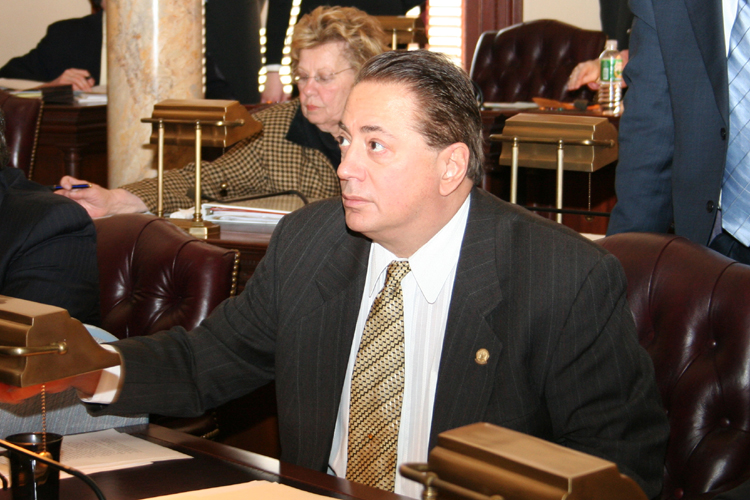
TRENTON – Summer may have just officially started, but the full Senate is preparing for winter, approving a bill sponsored by Senators Nicholas Sacco and Robert Gordon, which is aimed at increasing safety on the roads by requiring all drivers to remove ice and snow from their vehicle before heading out on the roadways.
“I see so many cars on the roads in the winter that have nothing but a small sliver of windshield cleared,” said Senator Sacco (D-Bergen, Hudson). “This is downright dangerous for both the driver and other passengers on the road. This is about encouraging people to be mindful of their own safety and the safety of others during the winter months.”
“This is about public safety, plain and simple,” said Senator Gordon (D-Bergen). “The roads are hazardous enough during winter storms, without drivers having to deal with sheets of ice or snow flying at them unexpectedly.”
Senate bill S520, approved by a vote of 35 to 0, would require drivers to make all reasonable efforts to remove accumulated ice or snow on the hood, trunk and roof of their motor vehicle prior to operation. Law enforcement would be authorized to stop an individual if it is believed the accumulated ice or snow may pose a safety threat to any individuals or property.
Anyone found in violation of the law, would be subject to a fine of at least $25 but no more than $75. However, no motor vehicle points or automobile insurance eligibility points would be assessed for the offense. The bill would not apply to any driver of a motor vehicle operated during a snow or ice storm that began while the vehicle was already in operation.
Funds collected under the bill would be used to offset the cost of a public education campaign to raise awareness on the importance of removing the snow and ice from a vehicle prior to operation, as well as towards the purchase and installation of equipment that would be placed at weigh stations, rest areas and inspection facilities to help commercial drivers remove snow and ice from large vehicles.
The law would go into effect twelve months after enactment. The bill, which was also approved by the Assembly today, now heads to the Governor for his signature.
# # #

